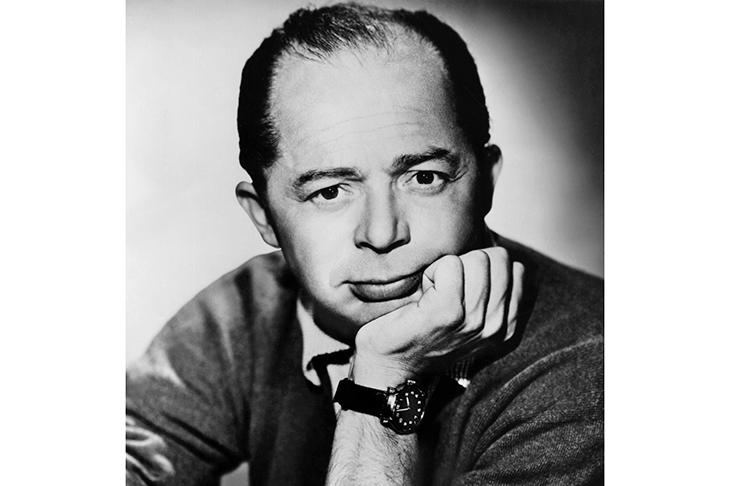Mr Wilder & Me is not in any way a state- of-the-nation novel — and thank goodness. Brilliant as Jonathan Coe’s last work, Middle England, was, I’m not sure I could stomach a fictional barometer of pandemic Britain. Coe’s new book is instead a comfortingly nostalgic coming-of-age novel, or rather, a coming-of-old-age novel, probing the twilight years of a Hollywood great.
Billy Wilder is predominantly famous for his work in the Golden Age of Hollywood, when post-war studios had plenty of cash to splash on the Oscar-winning comedies and noirs Wilder wrote and directed, including Sunset Boulevard, Some Like it Hot and The Apartment. Here, though, we meet him not in his heyday but in the 1970s, through the eyes of the young, wide-eyed narrator Calista, on the Greek set of one of his less successful films, Fedora, about an ageing movie star.
Just below the laughter is pain; humour is both Billy Wilder’s armour and release
Calista, a twentysomething Anglo-Greek musician, whose life is a ‘blur of just-about-tolerable boredom’ and who (a little implausibly) becomes the director’s translator after meeting him through friends in LA, treats him with an almost maternal gaze. She translates inane questions about his old movies from journalists on Corfu. ‘I just remember starting, for the first time, to feel a little sorry for him.’
Coe funnels his own wry humour through Wilder’s dialogue. Wilder cuts a tragic yet amusing figure, put out to pasture by the studios and worried about the new generation of film-makers, ‘the kids with beards’ such as Scorsese and Spielberg.
This is how they think, these people. We made one hundred million dollars with this shark, we need bigger sharks, we need more dangerous sharks. My idea was for a picture called Jaws in Venice… I pitched it to a guy at Universal as a joke. He thought I was being serious… So I said, OK fine, you can have that idea for free, but I’m not the person to direct it for you. I’m not really comfortable around fish, you know? I’m more of a human being kind of director.
Gradually Calista, who teases small, intermittent intimacies from Wilder, sees how haunted he is by his past. An Austrian Jew, he fled Europe before the war, and has no idea what happened to his mother, searching concentration camp footage for her. Just below the laughter is pain; humour is both his armour and release. ‘Life is ugly,’ he tells Calista over martinis: ‘We all know that. You don’t need to go to the movies to learn that life is ugly. You go because those two hours will give your life some little spark.’
Wilder — and Coe — can be intentionally evasive, notably in one rather clever chapter where Wilder chastises a Holocaust denier with descriptions of the camp footage, but written as film script, its sting removed. Here the evasiveness works. People do deal with trauma by distancing it. Calista, though, is not traumatised, and her equivocal, reminiscing tone sometimes leaves her a little bland. Her own middle-aged story frames the book, but she always felt to me a conduit for Billy’s tale.
Still, the book’s easy affection for Wilder is a lovely thing. Even as Coe mocks his subjects it is always with warmth, not derision. It is natural for things to change, and yet still sad when they do. This is a charming, bittersweet book, and a perfect reminder of art’s value in stark times.






Comments